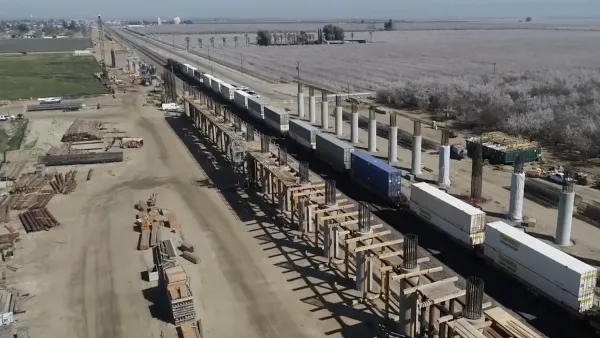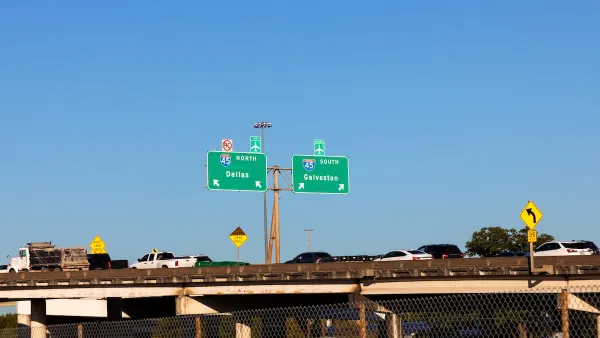CA Gov. Jerry Brown stated he had big plans in his State of the State speech on Jan 24. Thanks to temporary tax increases under Prop 30 and spending cuts, the budget is finally balanced. Yet he also called for 'fiscal constraint' - contradictory?
Jerry Roberts and Phil Trounstein lay out Brown's hopes for California - and his legacy in his third term as governor (he served from 1975-1983 following Ronald Reagan). Brown staked much on Proposition 30 in the November election - a temporary increase in the sales and top tier income tax - and the result is an expected $6 billion increase in revenue, thus ending the structural deficit that resulted when his predecessor, Arnold Schwarzenegger reversed the vehicle license fee increase - creating a $6 billion deficit.
Brown made no bones about his fiscally conservative impulse. “We have promises to keep. And the most important is the one we made to the voters if Proposition 30 passed: that we would guard jealously the money temporarily made available,” he said.
“This means living within our means and not spending what we don’t have. Fiscal discipline is not the enemy of our good intentions but the basis for realizing them.
He may have been directing those words to his fellow Democrats who now control a super-majority in both legislative houses, thus making tax increase possible without the help of Republicans who had even prevented his placing Prop 30 on the ballot as a legislative initiative - he had to raise the funds and place it as a citizens initiative.
Yet while calling for fiscal constraint, he made his plans clear for significant infrastructure improvement. He "sees this moment in California history – where water, rail and the environment pose huge challenges and opportunities (much like the ones his father faced in the 1960s) – as part of an unbroken strand of Golden State history..."
To 'think big':
- "California should approve Brown’s plan to tunnel water from the San Joaquin Delta to critical economic regions of the state.
- California must set its sights on getting at least a third of its electricity from solar, wind and other renewable sources by 2020.
- California must build a high-speed rail system."
Robert and Trounstein sum-up by writing that "(t)hese are the kinds of bold projects that link today’s legislators with the grand history of California, Brown was saying. Whether the governor has the skill and clout to lead Sacramento toward his vision of its destiny is uncertain."
However, starting off with a balanced budget - the first one with no gimmicks since his predecessor created a $6 billion structural deficit, is a good way to start.
To listen to an abbreviated or the entire speech, see KQED's "Jerry Brown's State of the State Speech in 7, 15 and 30 Minutes".
FULL STORY: What Brown Told the Legislature About CA’s Destiny

Analysis: Cybertruck Fatality Rate Far Exceeds That of Ford Pinto
The Tesla Cybertruck was recalled seven times last year.

National Parks Layoffs Will Cause Communities to Lose Billions
Thousands of essential park workers were laid off this week, just before the busy spring break season.

Retro-silient?: America’s First “Eco-burb,” The Woodlands Turns 50
A master-planned community north of Houston offers lessons on green infrastructure and resilient design, but falls short of its founder’s lofty affordability and walkability goals.

Test News Post 1
This is a summary

Analysis: Cybertruck Fatality Rate Far Exceeds That of Ford Pinto
The Tesla Cybertruck was recalled seven times last year.

Test News Headline 46
Test for the image on the front page.
Urban Design for Planners 1: Software Tools
This six-course series explores essential urban design concepts using open source software and equips planners with the tools they need to participate fully in the urban design process.
Planning for Universal Design
Learn the tools for implementing Universal Design in planning regulations.
EMC Planning Group, Inc.
Planetizen
Planetizen
Mpact (formerly Rail~Volution)
Great Falls Development Authority, Inc.
HUDs Office of Policy Development and Research
NYU Wagner Graduate School of Public Service




























